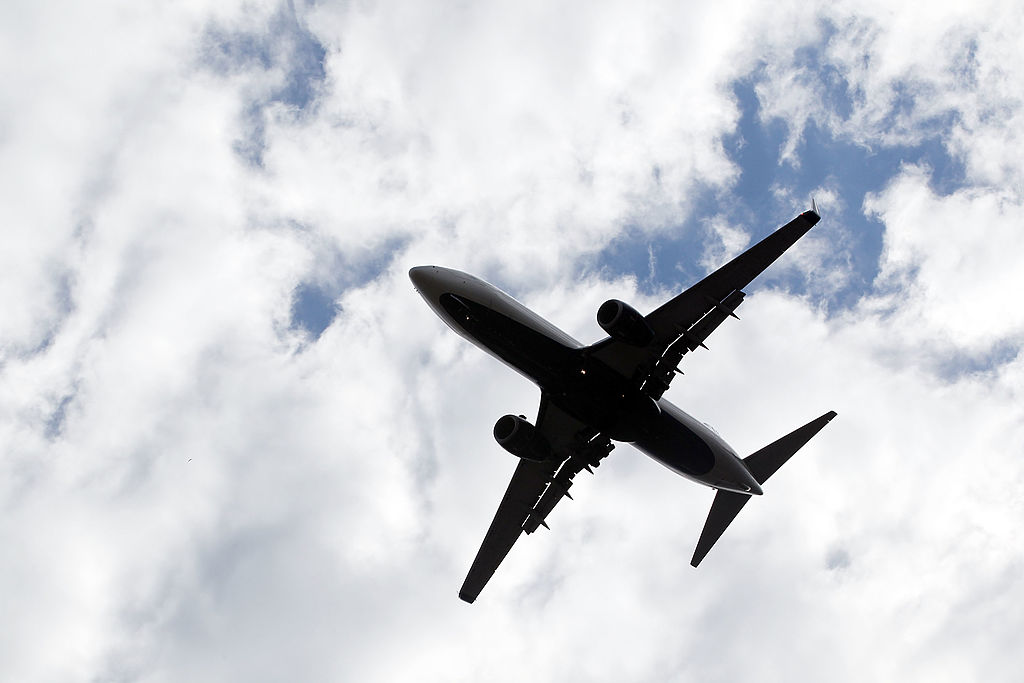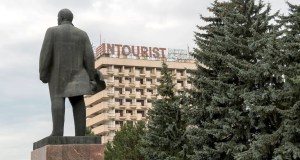We recently left the country for the first time since the pandemic began. I could say that we’d always wanted to go to Iceland, but the truth is, we’d wanted to go to Iceland ever since we heard how sanely they handle visitors. Even at the height of the pandemic in 2020, they didn’t require COVID tests for children. They still don’t.
Iceland is the world’s most vaccinated nation, with 86 percent of the country having gotten the jab. A recent ‘spike’ (they peaked at 170 cases per day in mid-August) led to an indoor mask mandate, but it doesn’t apply to kids. The mandate is also very loosely enforced. There are no Karens shrieking at people to mask up in shops, and I saw many unmasked Icelanders indoors. The only people masking outdoors in Iceland, and the only people masking their children anywhere in Iceland, were Americans.
My kids didn’t need a COVID test to get into Iceland, but they did need one to return to the US. And though Iceland has always exempted kids from masking, America demands masks even for toddlers. We are in a moment of profound fear in the US. The pandemic has broken something in us that has been cracking for some time. The way we look at travel, especially travel abroad, shows we are losing our minds.
Our leaders have set an impossible goal: containing a virus that was quite possibly created with humans in mind. After 18 months of COVID-19, and despite mass vaccinations, the travel taboo remains in place. The US has some of the strictest entry restrictions – tougher than Iceland, the UK and most EU states. The Biden administration even prohibits visits to the US by family members from the UK and EU.
When the restrictions began to loosen, masks were (briefly) removed and distances between people began to condense. But travel remains a separate category. Masks are still required on planes even though many countries require airlines to check vaccination status as well as evidence of a negative COVID test. Planes are seen as flying chambers of COVID, even though little spread has been linked to air travel. In October 2020, the Journal of the American Medical Association reported that the risk of contracting COVID-19 on a plane is ‘lower than from an office building, classroom, supermarket, or commuter train’.
People who travel now are morally suspect. They’re lax, unserious. Their motion stirs up the virus, endangers us all. Last winter my doctor in New York City sent an email to her patients that she would not be seeing anyone who had recently traveled. She didn’t shut out anyone who had been to a bar, a casino or, ahem, a massive protest, but getting on a plane meant you were unclean. We’ve turned so much about COVID into a morality test that a good person wouldn’t take a trip. Those who do travel are skittish about sharing on social media.
My first international vacation was to Venezuela as a child. My parents had grown up in the Soviet Union, where the world was very small. Once they were free, they treated travel as something important and necessary. It had been kept from them, and now it would be kept no more. They had read Arthur Conan Doyle’s The Lost World and we went to Canaima, Venezuela to find it.
There’s a magic in movement. The languages, the food. You could fall in love. You could have adventure. You can see what you’ve only imagined. ‘How do you say…?’ That dish you ate, in that town, where you met that guy who told you that story. Travel is kept from unfree people specifically because it broadens the mind with the kind of broadening that makes it harder to control a populace.
When the world is closed to you, as it was under the Soviets, it increases your paranoia and makes you suspicious of anything different. It’s not surprising that our time apart from each other has seen a severe rise of conformity and the demand for conformity, whether enforcing each other’s mask wearing or destroying the lives of anyone who dares to commit wrongthink. Couple isolation with fear, and a powerful locomotive of totalitarianism is heading right for us.
Domestic travel is permitted — even to areas of the US with much higher rates of infection than foreign states, and even to the southern border, where the government suspends its own laws when handling illegal migrants. The reasons why international travel is off-limits and shameful, even after vaccination, previous infection and a negative COVID test, have nothing to do with medical facts. As with so many COVID regulations, they have more to do with cultural and political norms.
Now that COVID is endemic, it is time for the fearmongers to allow us to reconnect. Will it only be the Kardashians on private yachts and islands, which is how elites lived their parallel lives during the pandemic? Denver’s mayor Michael Hancock, Austin’s mayor Steve Adler, Michigan’s governor Gretchen Whitmer, Rep. Eric Swalwell of California and New Jersey’s governor Phil Murphy are just some of the politicians who have traveled while actively telling others not to. Will travel be reserved for people of higher castes while the rest of us wait for a ‘COVID zero’ moment that will never come?
No. We cannot continue to succumb to a fear of life. We must not continue to be scared of each other. Go now. Go wherever you can and normalize the going. Go because travel is good, healthy, fun and important. Don’t wait. Go while you’re still free.
This article was originally published in The Spectator’s October 2021 World edition.


















